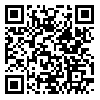مجله رویش روانشناسی از دادن گواهیهای کاغذی معذور است. لطفا تقاضا نکنید. همه گواهی ها در صفحه شخصی کاربران موجود است.
year 13, Issue 11 (Winter 2025 2025)
Rooyesh 2025, 13(11): 31-40 |
Back to browse issues page
Download citation:
BibTeX | RIS | EndNote | Medlars | ProCite | Reference Manager | RefWorks
Send citation to:



BibTeX | RIS | EndNote | Medlars | ProCite | Reference Manager | RefWorks
Send citation to:
Mosleh S Q, Farid A, Habibi Kaleybar R, Javad Mesrabadi J. (2025). The Feasibility of the moral neuroscience training package is based on Dweck's growth mindset on the social skills of adolescents with externalizing behavior problems. Rooyesh. 13(11), 31-40.
URL: http://frooyesh.ir/article-1-5688-en.html
URL: http://frooyesh.ir/article-1-5688-en.html
1- PhD Student, Psychology and Educational Science Faculty, Azarbaijan Shahid Madani University, Tabriz, Iran.
2- Associate Professor, Faculty of Educational Sciences and Psychology, Azarbaijan Shahid Madani University, Tabriz, Iran. ,Abolfazlfarid@gmail.com
3- Professor, Faculty of Educational Sciences and Psychology, Azarbaijan Shahid Madani University, Tabriz, Iran.
2- Associate Professor, Faculty of Educational Sciences and Psychology, Azarbaijan Shahid Madani University, Tabriz, Iran. ,
3- Professor, Faculty of Educational Sciences and Psychology, Azarbaijan Shahid Madani University, Tabriz, Iran.
Abstract: (308 Views)
The present study aimed to evaluate the feasibility of moral neuroscience training based on Dweck's growth mindset on the social skills of adolescents externalizing behavioral problems. The research method was quasi-experimental with a pre-test-post-test design, a control group, and a one-month follow-up stage. The statistical population included all male high school students in Urmia in the academic year 2023-2024. After selecting an available school and completing the youth self-report scale (YSR) and the moral growth mindset scale (MGM), 30 students classified with the symptoms of externalizing behavioral problems and fixed moral mindset were randomly assigned to two groups of 15 subjects. For 12 sessions of 90 minutes, the experimental group underwent moral neuroscience package training based on Dweck's growth mindset approach. Social Skills Rating Scale (Gresham & Elliott, 1990) was used to collect data. Data analysis was done using the statistical variance analysis method with repeated measures. The results showed that moral neuroscience training based on Dweck's growth mindset in the post-test and follow-up stages significantly affected the experimental group's self-control, empathy, and cooperation (p<0.05). However, no significant difference was observed in the component of assertion between the two groups (p>0.05). Based on the findings, the moral neuroscience training package based on Dweck's growth mindset can effectively improve the social skills of adolescent students with externalized behavioral problems.
Keywords: Dweck's Growth Mindset, Moral Neuroscience, Externalizing Behavior Problems, Social Skills.
Type of Article: Research |
Subject:
Educational Psychology
Received: 2024/09/24 | Accepted: 2024/11/18 | ePublished: 2025/01/29
Received: 2024/09/24 | Accepted: 2024/11/18 | ePublished: 2025/01/29
Send email to the article author
| Rights and permissions | |
 |
This work is licensed under a Creative Commons Attribution-NonCommercial 4.0 International License. |





